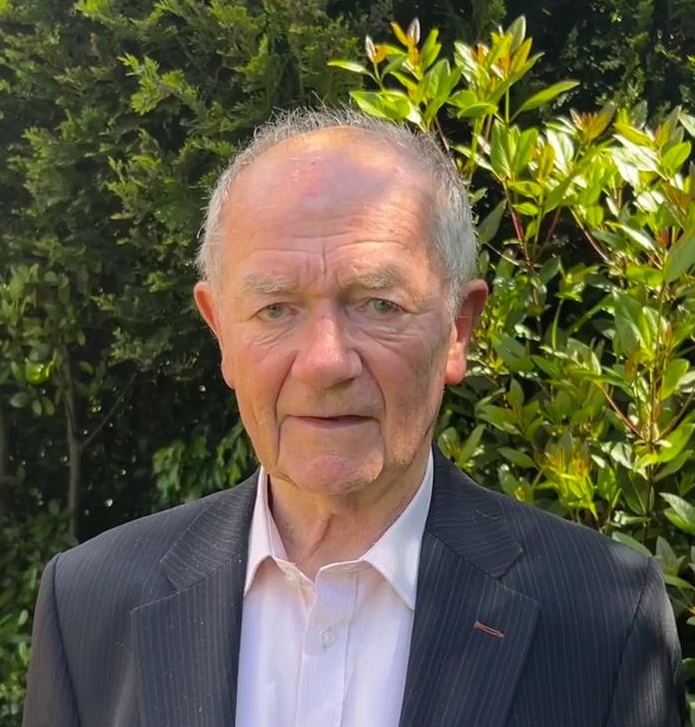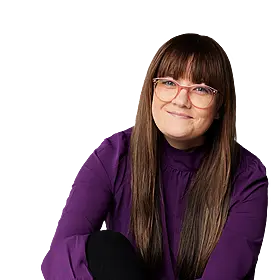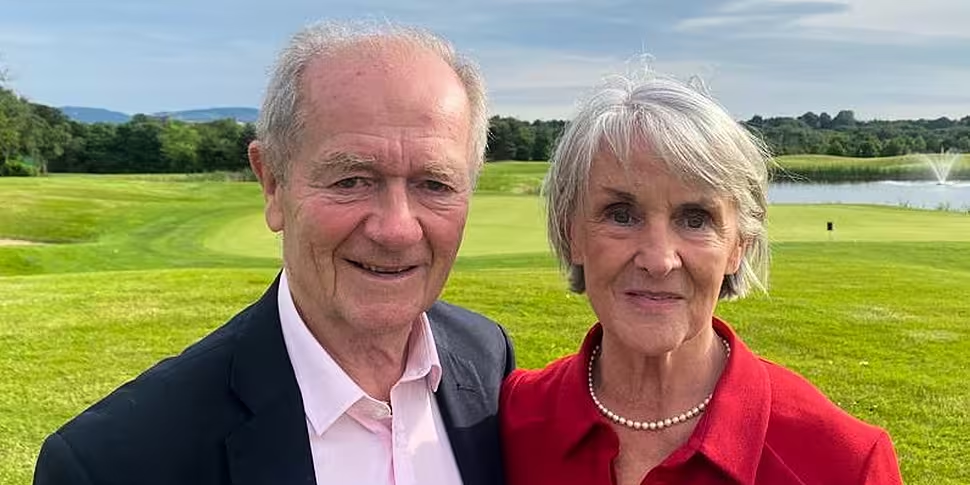One man caring for his wife who has dementia has said the stories he has heard from others are 'unbelievable', and wants more funding to help carers.
A new report from the Alzheimer Society of Ireland has found only 20% of people living with dementia have access to services that meet their care needs.
Approximately 64,000 people are living with dementia in Ireland; that number is expected to rise to 150,000 by 2045.
Tony McIntyre, who is a carer for his wife Mary, told Newstalk Breakfast they did not know how to handle her diagnosis.
"I'm on the Dementia Research Advisory Team, it's set up by the Alzheimer Society of Ireland, and it's run by carers and people with dementia," he said.
"The stories you hear are just unbelievable; the sorrow and the pain, the stress and the strife, it's unbelievable."
 Tony McIntyre
Tony McIntyreMary was diagnosed with dementia eight years ago in what Tony described as a "cloud" over their heads.
"We thought that it was the end of life for Mary, we knew nothing about it and we weren't expecting it," he said
"It was only then maybe months later when we heard about the Alzheimer Society and we met a lady called Joanne Brennan, she's the dementia advisor for the north of Dublin.
"Joanne lifted that cloud off our heads and we saw the sunshine again."
'I ended up in hospital'
Mr McIntyre said everything seemed to be going well, and Mary got involved with the Dementia Research Advisory Team.
"Then when COVID came along she couldn't handle the computer, I'm good with computers, so I got involved with her then on that," he said.
"The thing [that] happened is that with all the stress of COVID and all the stress of Mary with the Alzheimer's, I ended up in hospital for three nights with stress.
"That opened my eyes: I thought, 'What happens if something happens to me?'
"I found out on the advisory team that... one of their parents had Alzheimer's and the other one got a stroke... from all the stress and the lack of help that they were getting.
"We need more support."
'That changed my life'
Mr McIntyre said when he got out of hospital he did an eight-week, online course that helped him.
"That changed my life... I understood more about what was going on in Mary's memory and her brain," he said.
"When a person gets up in the morning, Mary has her shower and that, she would come down dressed in the same clothes as she did the day before and the day before.
"I couldn't understand it - on the course I learned that what you do is open the wardrobe doors... cause she can see everything.
"They can't remember where their clothes are."
 Source: Alzheimer Society of Ireland
Source: Alzheimer Society of IrelandTony said he also learned about the changes in the condition over time.
"Now I'm at the stage where I pick out the clothes with her the night before and we lay them out.
"I would never have thought of that except for the Alzheimer's training."
Tony also noted a woman who had her house built with no cupboard or wardrobe doors.
"She got the house with no doors on any of her cupboards in the kitchen, the utility room, or even in the bedrooms.
"That made her left much easier."
Tony added: "More funding will help with everything like that; it'll help with home care...more money, more money, more money and we'll be happier."
Listen back here:
Anyone affected by issues raised in this article can contact The Alzheimer Society of Ireland on 1800-341-341 or email helpline@alzheimer.ie









